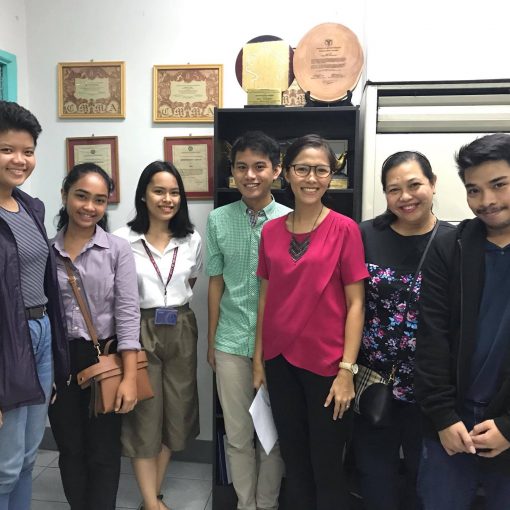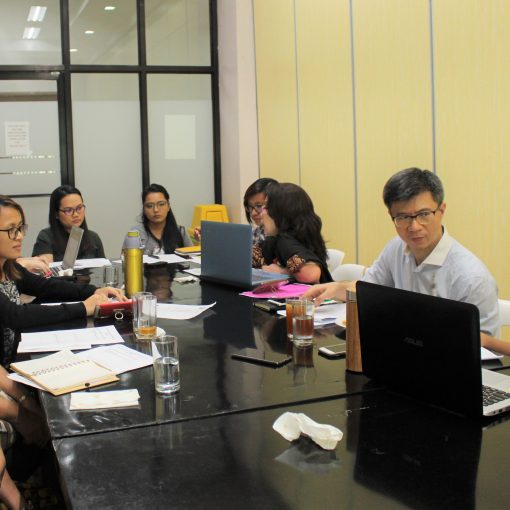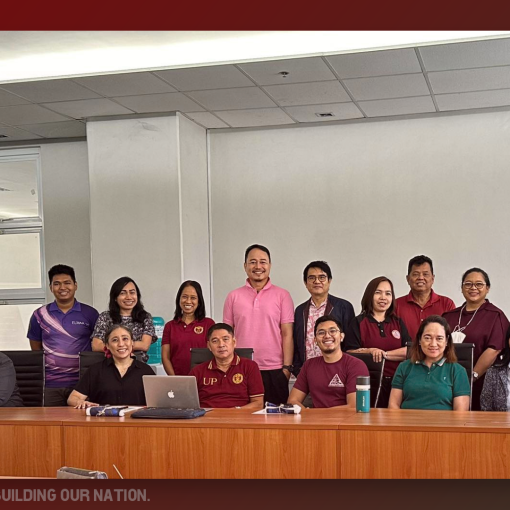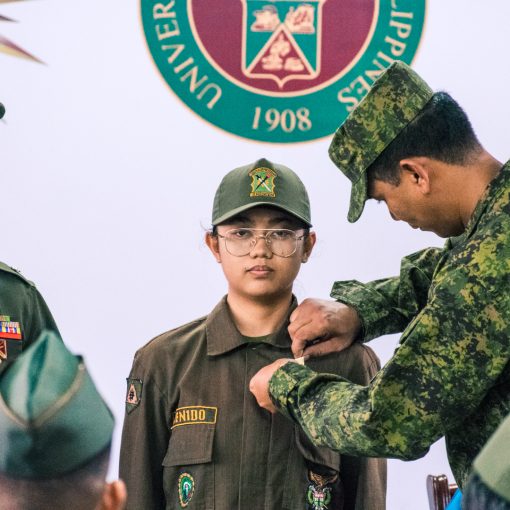UNLAD: Para kanino? Talakayan ukol sa pagbubuo ng mga proyektong pang-kaunlaran ng komunidad continues its run, as it featured the topic Steps and Methods in Community Organizing on January 16, 2020. It was attended by ninety-five (95) participants. While the first webinar circulated around people-centred development this session shifted its focus on community organizing.
The first speaker in this webinar is Professor Victor Obedicen. Professor Obedicen teaches both undergraduate and graduate students in various courses such as Community Organizing, Community Planning, and Community-based Disaster Risk and Reduction Management in the College of Social Work and Community Development at the University of the Philippines Diliman. The resource person reminded everyone that community organizing can take several forms and that it can come from different points of view. Moreover, the speaker clarified that the discussions will focus on his institution’s point of view. Community organizing is not just forming mere organizations rather is the formation of organizations of the people. The center of community organizing is the people. It is a process that strengthens the capabilities and skills of people in the community to identify, face, and solve their problems. Since it revolves around people, one of the goals of community organizing is ensuring that people are aware of their situation and their potentials and resources to achieve a better quality of life. Community organizing aims to develop mechanisms and structures for upholding and protecting people’s rights. These awareness and mechanisms must reflect on actions that will contribute to changing the community.

The speaker continued by explaining why organizing and organizations are important. The unity of people creates power and strength. Organizations mean more people are addressing and thinking about solutions for the problems. They also have mechanisms for advocacy and networking. Another importance of organizing is that organizations, when functional and strong, tend to last longer. Lastly, they serve as a vessel in accomplishing project development plans for the community. Prof. Victor mentioned that in community organizing there are non-negotiables or ideas and principles that are not up for debate but rather accepted as truth. These include (1) trusting the people, (2) starting where the people are, (3) making the interest of the majority as the priority, (4) believing that the result of community organizing is a “more just, humane and democratic society”, (5) knowing the importance of critical and active participation in empowering people, (6) knowledge that there are various interests present in a community, and (7) believing that people in the community are responsible for administering change.
There are four integrated phases in the community. These are: (1) Social Preparation, (2) Leadership Development and Capability Building, (3) Organizational Development and Management, and (4) Consolidation and expansion/phase-out. The speaker then linked community organizing to participatory project development. Community organizing should come first before the project development because community organizing prepares the organization to handle the project effectively. Organizations also make sure that the project will come through by ensuring accountability. The speaker reminded the participants that a genuine service should be anchored on people’s aspirations. The role of organizers, therefore, is more of a “supporting cast” that echoes the calls of the main actors – the people of the community.
The second speaker is Ma’am Ariane Carandang, an artist, and a cultural worker. She is a member of the group Sining Na Naglilingkod sa Bayan or SINAGBAYAN. SINAGBAYAN was formed from the group Tumbang-Preso which consists of musicians performing in cafes and bars. SINAGBAYAN then evolved in 2000 to its present name and advocacies amidst the people’s struggle against the then- corrupt and morally-bankrupt regime. The group consists of cultural workers (musicians, artists, writers, visual artists, and theater artists, to name a few) who go by the phrase “revolutionizing the stage, staging the revolution.” They conduct major and minor performances, volunteer service works, and workshops.
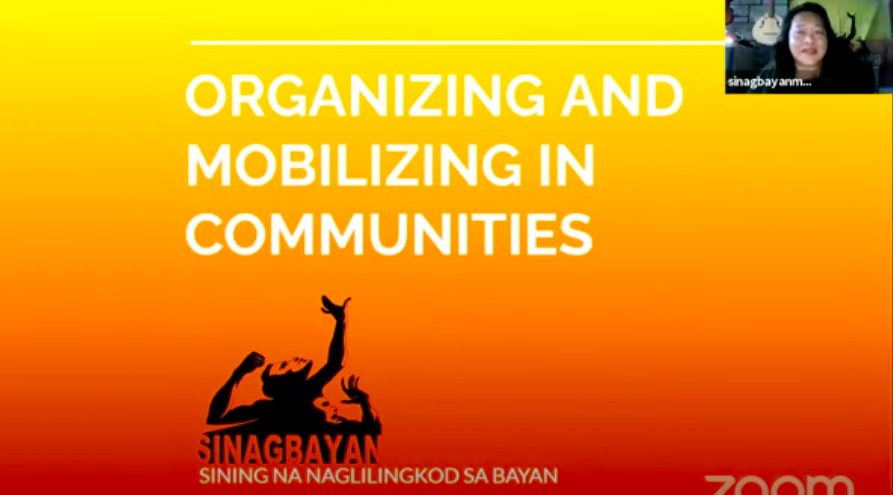
The group uses art to show the “plight of the Filipino people in a decadent, backward, and colonial culture.” Their art and performances are based on the people and for the people. As their group says it “art in the service of people.” The purpose of these arts is to raise and amplify the sentiments of the poor by unveiling the true face of poverty. Another aim of the group is to organize the community. Ma’am Carandang mentioned that community organizing is not quick and short but rather, a step-by-step process. They make sure that they know the community by identifying the demographics, knowing how well the people in the community know each other, and determining when the community was established. The speaker also mentioned how important it is to know what are the problems, concerns, and long-term goals of the community. Through organizing, SINAGBAYAN amplifies the calls and advocacies of the community.
In this webinar, community organizing was given the spotlight. With this light, it became clear that community organizing should focus on the people. It should always be for the people. This light is expected to transcend and shine on the succeeding webinars. The webinar series continues to impart knowledge to its participants about project development. With two out of the five webinars of the series done, the discussion about project development continues to deepen and flourish.
by Abegail Panghulan


